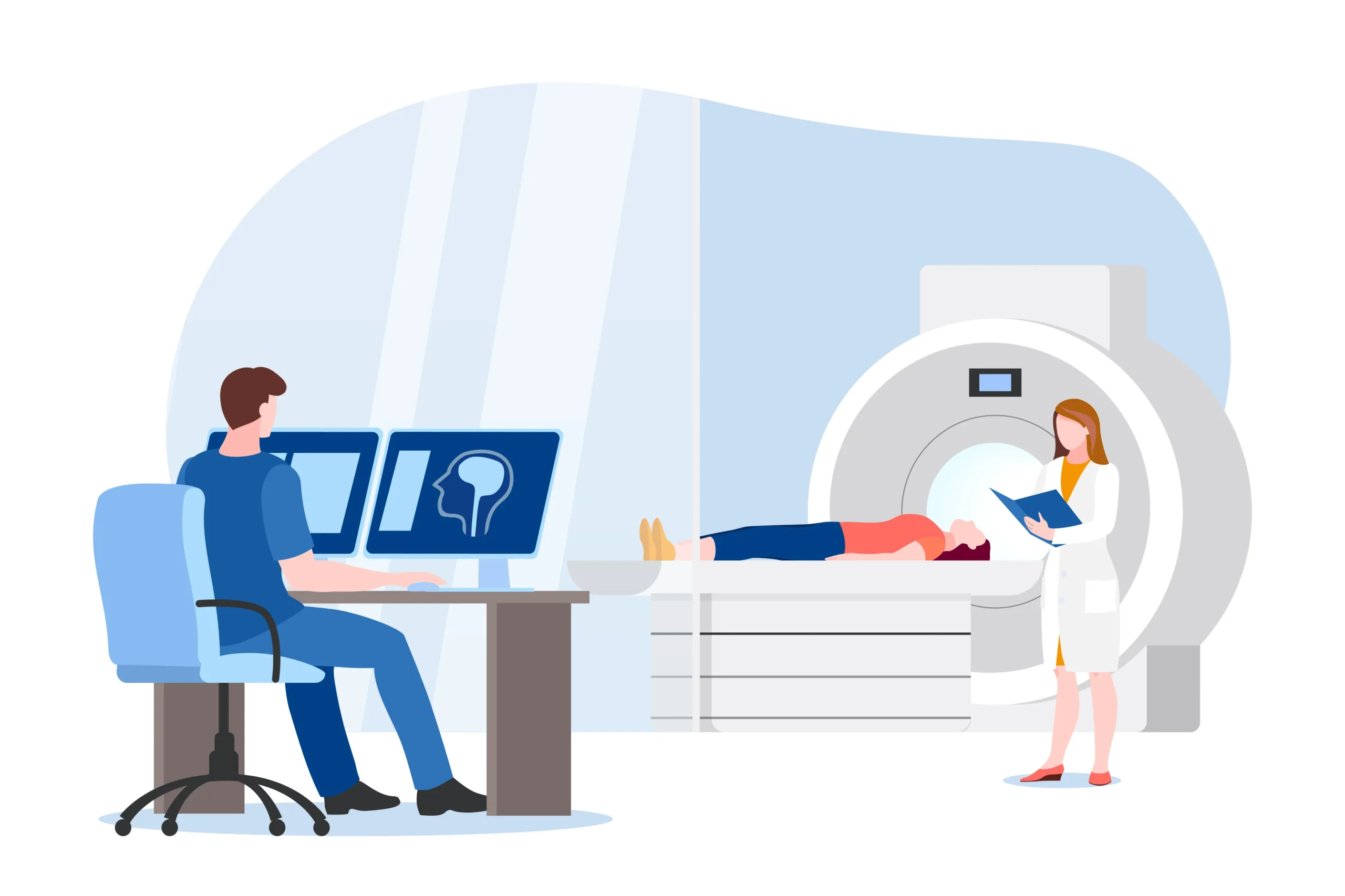Magnetic Resonance Imaging (MRI)

Magnetic resonance imaging (MRI) is a way of taking pictures of the inside of the body without X-rays. MRI uses a strong magnet to make the pictures. This is called an MRI scan.
An MRI scan is fairly noisy but does not hurt. A number of short MRI scans make up a complete MRI study. A complete MRI study may take as little as 30 minutes and up to 2 hours to complete.
Getting ready for the MRI
Tell the MRI team about any metal in your child’s body
Because MRI involves a strong magnetic field, certain metal implants could injure your child. Tell the MRI team if your child has had any surgeries, procedures, or injuries that involved metal, such as metal rods, plates, screws, braces, clips, or body piercing. If your child does have any implants, please give the MRI team information about the type of device and the manufacturer. In some cases, your child may need an X-ray to confirm that it is safe for him to have an MRI. If you have any questions, please contact the MRI team.
Your child may need sedation or general anaesthetic
If your child is old enough and able to lie completely still for about an hour (on average), he will not need to do anything special to prepare for the MRI study.
If your child is not able to lie still for the whole study, he may need a special “sleep medicine.” If your child is an outpatient and needs to be asleep for the procedure, the MRI unit will give you information about when to stop feeding your child before the appointment.
If your child needs to be asleep for the procedure, the nurse or anaesthesiologist will perform a full medical assessment to make sure it is safe for your child to have the sleep medicine. If it is not safe, your child’s appointment will be delayed or cancelled.
Your child may need a needle for the MRI study?
Some MRI scans give the doctor more information when they are done with a special liquid called a contrast medium. This liquid is put into the vein in the hand or arm using an intravenous line (IV). The IV is put in with a small needle. If needed, the IV will be inserted before the MRI scan.
Contrast medium is normally very safe, but it may produce a reaction in rare cases. The team will watch your child very closely during and after the MRI to see if your child has a reaction. The team is trained to deal with these problems if they happen. A member of the team will discuss the risks with you before the MRI.
What to tell your child about the MRI
Tell your child exactly what will happen during the MRI scan. Explain what he will see, hear, and feel. Here is a description of what happens during an MRI scan. Remember, MRI scans do not hurt!
What happens before an MRI
Before your child goes into the room, the staff will ask some questions. They want to make sure your child will have no problems being near the strong magnet in the MRI scanner. There are some metal devices and implants that make it impossible to have an MRI.
Your child will have to empty his pockets completely of everything, including coins, keys, pens, cell phones, wallets, and bank cards. He will also have to take off his watch. Your child cannot wear any makeup or jewellery.
What happens during an MRI?
The MRI scanner is a large, round machine with a wide tunnel in the centre.
Your child will lie on the bed. The technologist will place him in the correct position for the MRI scan.
When everything is ready, the bed will be moved into the tunnel. Most of your child’s body will be inside the tunnel.
Your child must lie completely still for the whole time of each MRI scan.
The scanner makes a loud knocking or drumming sound during scanning. Everyone staying in the room will wear ear plugs or headphones to protect their hearing.
The technologist will talk to your child through a speaker. When the MRI scan is complete, the technologist will help your child off the table.
In some scanners, there is an entertainment system so your child will be able to watch a movie while having the scan.
If your child does not need to be asleep during the study, you will be able to stay in the room with your child if you wish. If you wish to stay in the room, you will also need to be screened for metal implants.
Key points
An MRI is a way of taking pictures of the inside of the body without X-rays. It does not hurt.
Tell the MRI team ahead of time if your child has any metal in his body.
An imaging specialist will look at the MRI study and send a report to your doctor. Your doctor will talk to you about the results of the MRI.

